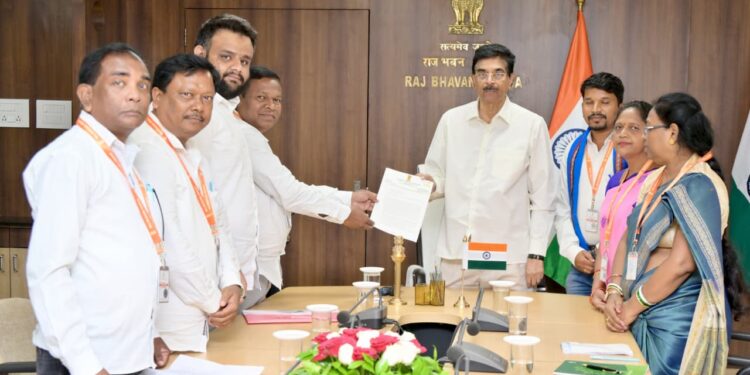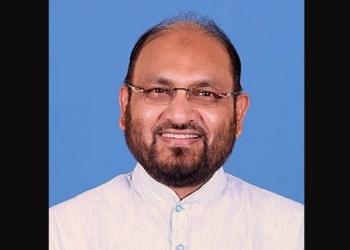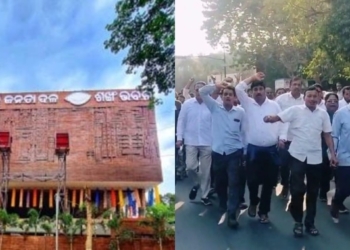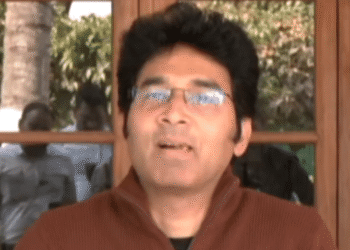A delegation from the Adivasi Congress, led by former MP Yashobant Narayan Singh Laguri, met Odisha Governor Dr. Hari Babu Kambhampati on Saturday to submit an 11-point memorandum addressing critical issues faced by the Scheduled Tribes (STs) of Odisha.
Representing nearly 24% of the state’s population, the 65 recognised tribal communities continue to face socio-economic challenges despite numerous government policies and laws. The memorandum highlights systemic issues affecting tribal rights, education, and livelihoods. Key demands include the proper implementation of the Panchayat Extension to Scheduled Areas (PESA) Act, 1996, which has been enforced without clear guidelines, depriving tribals of their constitutional rights to water, forests, and land.
The delegation urged the state to issue comprehensive rules to prioritise the PESA Act over conflicting laws, addressing disputes in the 122 Scheduled Area Community Development Blocks where land acquisition for development projects often involves coercion. Education remains a significant concern, with tribal children denied their constitutional right to mother tongue-based education due to the limited expansion of the Multi-Lingual Education (MLE) program since 2014. The delegation demanded the inclusion of more schools and the appointment of language teachers to ensure access to education in native languages. Additionally, they pointed out that the 2015 Odisha government order for proportionate reservation in higher education (23.5% for STs) is undermined, with only 12.5% reservation provided in technical and professional institutions, limiting opportunities for tribal students.
The memorandum also addressed livelihood challenges, including unemployment caused by the mechanisation of mining activities, which has displaced tribal workers. The delegation called for alternative livelihood options and an assessment of displaced communities’ socio-economic conditions. Furthermore, delays in disbursing scholarships and stipends for ST students have disrupted their education, necessitating urgent action for timely disbursal. Under the Forest Rights Act (FRA), 2006, only 13% of eligible villages have received community forest rights, and individual land titles are not recognised for issuing caste certificates, barring tribals from accessing education and other benefits.
The delegation demanded expedited FRA implementation, empowering Gram Sabhas to manage community resources and nullifying the Forest Department’s Vana Surakshya Samiti. They also called for Gram Sabha approval for Tribal Sub Plan (TSP) funds and a ban on transferring common lands (e.g., grazing and religious lands) to land banks without community consent. Non-compliance with the Odisha Reservation of Vacancies Act, 1975, particularly the failure to maintain Roster Registers in government departments, was another critical issue raised, with a demand for strict enforcement.
The delegation, including PCC secretaries Lakshmidhar Singh, Anima Minz, Mohan Hembram, senior tribal leader Ranjita Hembram, tribal leader Mataras Dungdung, and Cuttack district youth leader Akyub Khan, urged the Governor to intervene as the custodian of the 5th Schedule areas.
The Adivasi Congress emphasised that addressing these issues is vital for the socio-economic upliftment of Odisha’s tribal communities, who continue to face marginalisation despite constitutional protections.






























